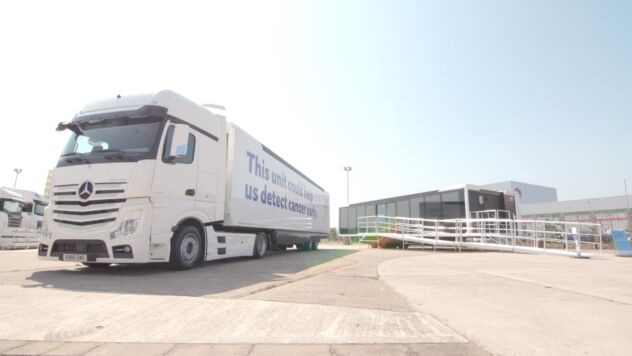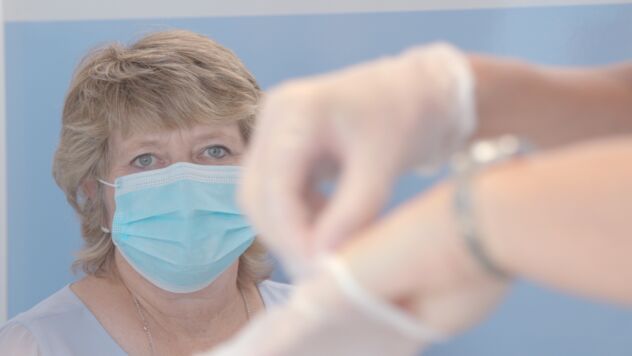About the trial


What is the purpose of the NHS-Galleri trial?
Galleri® is a blood test that can detect a signal shared by many different types of cancer in a sample of a person’s blood.
The NHS-Galleri trial is a research trial to see how well the Galleri blood test works in the NHS. The aim of the trial is to see if using the Galleri test alongside existing cancer screening can help to find cancer early. Finding cancer early often means it is easier to treat.
Over 140,000 volunteers aged 50–77 have registered to take part in the trial after receiving an invitation letter from the NHS. Participants have been invited to attend three appointments over two years, about 12 months apart.
Although appointments are complete, data is still being collected to help with the research. Final trial results are expected to be available from 2026 but may take longer.
A trial is a type of research study that aims to understand whether a new treatment or test works better than other approaches that are already being used.
Learning from the trial
After the trial, we will have a much better understanding of how well the Galleri test works in the NHS. If it does work, then it could be used in the NHS in the future (like breast screening or bowel screening, but for many different types of cancer).
If the Galleri test does not work well in this setting, then we will still have learned important information about what research needs to be done in the future to improve cancer screening.
Who is taking part in the NHS-Galleri trial?
Registration closed
The NHS-Galleri trial is not accepting new participants at this time — registration is closed.
At the time of registration, volunteers were:
Aged 50 to 77
Had not been diagnosed or treated for cancer in the last 3 years
Registered with a GP in one of the areas where the trial is taking place
As a participant, you have been invited to three appointments over two years, about 12 months apart.
One of the questions researchers want to answer is how often people should be tested with the Galleri test to help the NHS find cancer early. Looking at your blood samples spaced about 12 months apart will help researchers to answer this question.
Testing blood samples after the second and third appointments may find more cancers at an early stage.
By attending your appointments you have helped research to understand how the NHS might be able to offer the test to people in the future.
Where the trial is happening
The trial is taking place in areas across England known as Cancer Alliances. Cancer Alliances bring together clinical and managerial leaders from different hospital trusts and other health and social care organisations, to transform the diagnosis, treatment and care for cancer patients in their local area.
The trial is taking place in the following eight Cancer Alliance areas in England:
- Cheshire and Merseyside
- East of England (North)
- Greater Manchester
- Kent and Medway
- East Midlands
- West Midlands
- Northern
- South East London
Appointments were held at large mobile clinics and smaller mobile vans. Mobile clinics could be reached by public transport and many clinics were based in supermarket car parks with parking.

Benefits and risks of taking part
By taking part in the trial, you are contributing to cancer research that may benefit people in the future. You may not benefit directly by taking part.
If the trial finds that the test can detect cancer early when used with existing cancer screening in the NHS, then more cancers could be successfully treated in the future. This is because the earlier cancer is found, the easier it is to treat.
You will not benefit financially if a product or test is successful because you have been involved in the trial.
The trial team will try to make sure people who take part in the NHS-Galleri trial have a good trial experience. However, there are some risks that you need to be aware of.
When you took part in the trial, you were asked to give a number of blood samples. Giving blood samples is generally safe but there are some possible side effects including:
- discomfort
- lightheadedness
- infection
If the test detects a cancer signal, you could experience anxiety or distress. Like all screening tests, the Galleri test is not perfect and can give a wrong result. If the test detects a cancer signal and no cancer is found by the doctor, you may have had further tests that were unnecessary. Those further tests can have their own risks, such as radiation from scans, that you should discuss with your doctor before having them.
The trial team try to make sure people who take part in the NHS-Galleri trial have a good trial experience.
What organisations are involved
GRAIL Bio UK Ltd. is the main funder and organiser of this trial. It is a branch of GRAIL, Inc. in the United States that developed the Galleri test.
NHS England is a partner and provides follow-up and care related to the trial. The National Disease Registration Service provides data for the trial.
The Cancer Research UK Cancer Prevention Trials Unit at QMUL, a team of cancer researchers and trial managers at Queen Mary University of London (QMUL), coordinates this trial and will analyse the results. The unit was based at King’s College London before moving to QMUL.
More about the trial teamResearch publications related to the trial
Information about the trial is being published in scientific journals. Summaries of these publications are available.
Publication summaries
